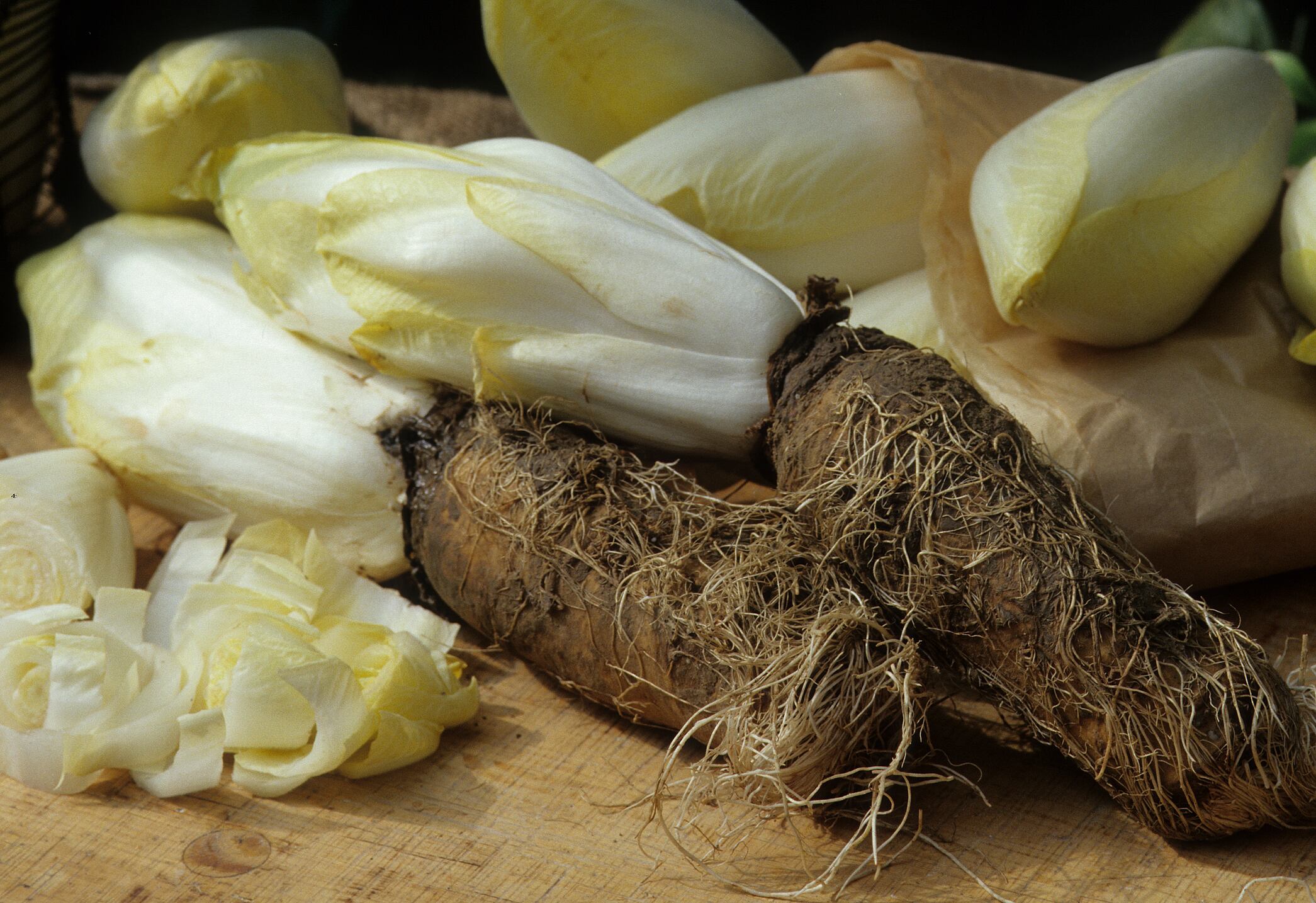The vegetable may promote lactate dehydrogenase B (LDHB), an enzyme that helps oxidize lactate in the mitochondria in cells.
Writing in the journal Nutrients, researchers from China propose that phenolic acid-rich vegetables have a potential ergogenic effect, adding to existing evidence supporting the benefits of nitrate and flavonoid-rich plant foods during exercise.
“Brussels chicory is able to increase time to exhaustion during high-intensity aerobic exercise and also promotes post-exercise recovery, both of which are, possibly, in part reliant on facilitating LDHB-mediated lactate clearance in the muscles,” they wrote.
Lactate and exercise
Previously, lactate was considered a metabolic waste product, but seminal work in the 1980s by George Brooks at the University of California, Berkeley showed that lactate oxidation during exercise may be beneficial and even serve as an ergogenic aid.
The lactate shuttle mechanism demonstrates that lactate can be oxidized to use as fuel, promoting energy sufficiency and improved cognitive function during exercise. However, lactate oxidation has not yet been conclusively proven to improve sports performance.
Brussels chicory
Brussels chicory (Asteraceae, Cichorium intybus L. var. foliosum), sometimes called French or Belgian endive, is a leafy vegetable common in the Mediterranean diet.
It is rich in phenolic acids, which are anti-inflammatory and antioxidant and may regulate lipid, glucose and cellular energy metabolism.
In the current study, the researchers expected Brussels chicory’s antioxidant and anti-inflammatory capacities to contribute to its ergogenic potential. However, they found that it did not alter several markers of inflammation and oxidative stress.
Instead, they hypothesized that the mechanisms involved may be due to its alkalizing effects counteracting metabolic acidosis and possibly its effects on blood flow, although this is unclear.
Additionally, they noted that around 90% of intact flavonoids are not absorbed in the small intestine but instead are metabolized by microbiota into smaller compounds for absorption in the colon.
“Our current findings thus suggest that the ergogenic effect of flavonoid-rich fruits and vegetables might be also linked to these phenolic acid metabolites,” the researchers wrote.
The added that further studies on muscle fiber biopsy samples are needed to validate the effects of mitochondrial LDHB-mediated lactate oxidation.
The study also note that several other edible chicory varieties, such as radicchio and leafy lettuce, may have comparable phenolic acid content and could provide accessible ergogenic effects, highlighting the need for further research.
Study details
The randomized placebo-controlled crossover study recruited 32 university students with moderate recreational activity levels who agreed to maintain their usual diet and activity throughout the trial.
Researchers randomly assigned participants to consume either Brussels chicory juice (100 g of Brussels chicory containing ~130 mg of phenolic acids and 180 mL of fresh milk) or a placebo (180 mL of fresh milk) for seven days, followed by a two-week washout period.
On the seventh day, participants ate a McDonald’s burger for breakfast along with the assigned juice. Ninety minutes after eating, they participated in a short-term, progressive workload, high-intensity, exhaustive aerobic exercise using the standardized treadmill test, the Bruce protocol.
Researchers evaluated time to exhaustion and blood lactate after the exercise. They treated the participants' C2C12 myotubes with Brussels chicory phenolic acid to assess the effects on lactate metabolism and lactate dehydrogenase A(LDHA) and B (LDHB). These two enzymes are responsible for lactate biosynthesis and oxidation, respectively.
After the two-week washout, participants crossed over to the other group for the second phase of the investigation.
The findings revealed that the Brussels chicory increased the time to exhaustion by 8.3% to 12.2%, enhanced blood lactate clearance by 10.6% to 14.5%, and improved acid-base balance with an increase in bicarbonate in the blood circulation of 13.2% to 16.6%.
The myotubes experiments showed that Brussels chicory phenolic acids improved lactate metabolism and oxidation by increasing LDHB in mitochondria.
“In conclusion, our preliminary results support the ergogenic effect of the Brussels chicory on exhaustive aerobic exercise performance and post-exercise recovery, possibly, in part, by promotion of lactate oxidation,” the researchers wrote.
They recommended further studies to establish which compounds in Brussels chicory may be responsible for its potential ergogenic effects.
Source: Nutrients 2025, 17(2), 365; doi: 10.3390/nu17020365. “Brussels Chicory Enhances Exhaustive Aerobic Exercise Performance and Post-Exercise Recovery, Possibly Through Promotion of Lactate Oxidation: A Pilot Randomized, Single-Blind, Placebo-Controlled, Two-Way Crossover Study”. Authors: Y. Mao et al.

